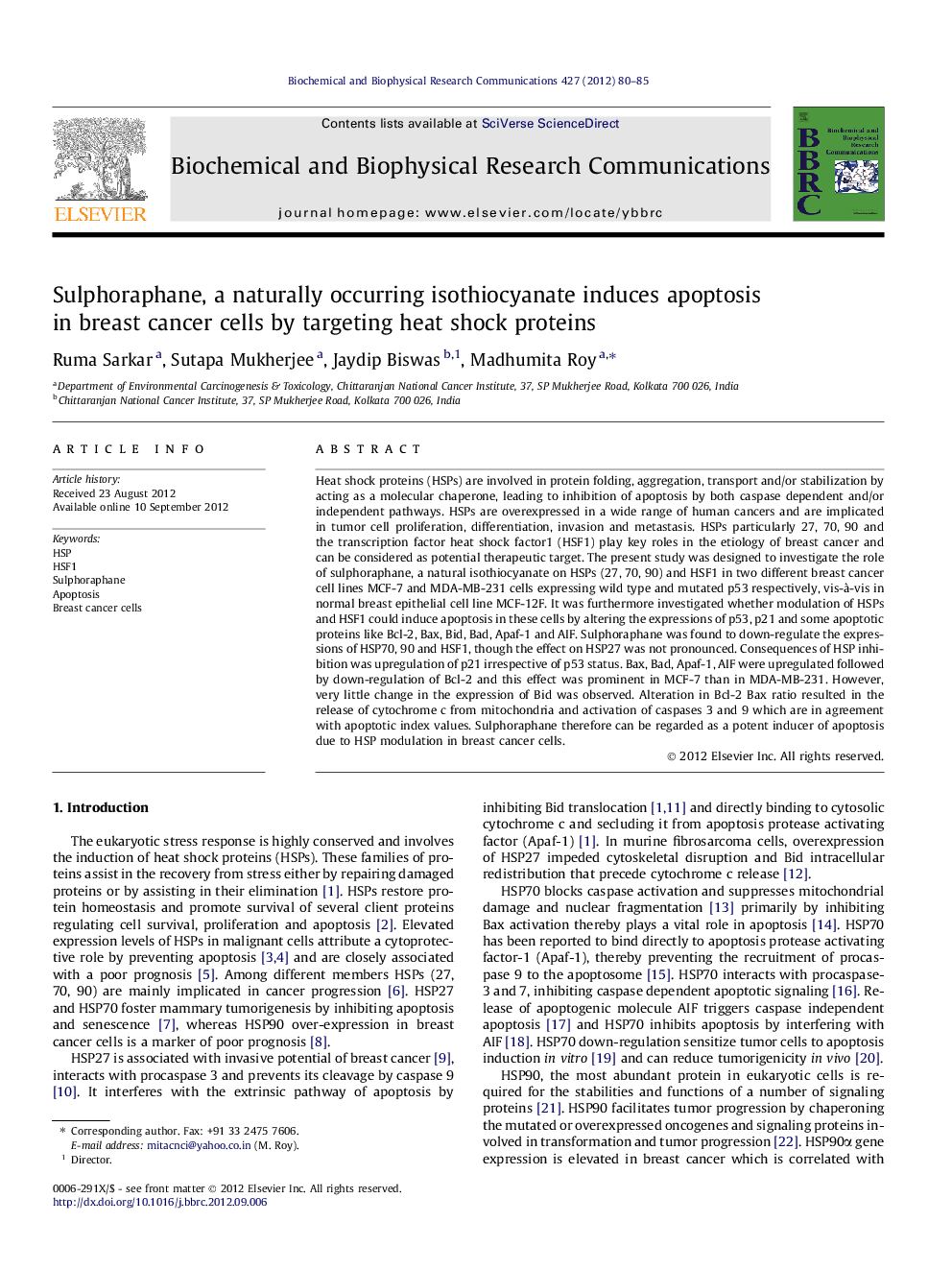| کد مقاله | کد نشریه | سال انتشار | مقاله انگلیسی | نسخه تمام متن |
|---|---|---|---|---|
| 1929479 | 1050460 | 2012 | 6 صفحه PDF | دانلود رایگان |

Heat shock proteins (HSPs) are involved in protein folding, aggregation, transport and/or stabilization by acting as a molecular chaperone, leading to inhibition of apoptosis by both caspase dependent and/or independent pathways. HSPs are overexpressed in a wide range of human cancers and are implicated in tumor cell proliferation, differentiation, invasion and metastasis. HSPs particularly 27, 70, 90 and the transcription factor heat shock factor1 (HSF1) play key roles in the etiology of breast cancer and can be considered as potential therapeutic target. The present study was designed to investigate the role of sulphoraphane, a natural isothiocyanate on HSPs (27, 70, 90) and HSF1 in two different breast cancer cell lines MCF-7 and MDA-MB-231 cells expressing wild type and mutated p53 respectively, vis-à-vis in normal breast epithelial cell line MCF-12F. It was furthermore investigated whether modulation of HSPs and HSF1 could induce apoptosis in these cells by altering the expressions of p53, p21 and some apoptotic proteins like Bcl-2, Bax, Bid, Bad, Apaf-1 and AIF. Sulphoraphane was found to down-regulate the expressions of HSP70, 90 and HSF1, though the effect on HSP27 was not pronounced. Consequences of HSP inhibition was upregulation of p21 irrespective of p53 status. Bax, Bad, Apaf-1, AIF were upregulated followed by down-regulation of Bcl-2 and this effect was prominent in MCF-7 than in MDA-MB-231. However, very little change in the expression of Bid was observed. Alteration in Bcl-2 Bax ratio resulted in the release of cytochrome c from mitochondria and activation of caspases 3 and 9 which are in agreement with apoptotic index values. Sulphoraphane therefore can be regarded as a potent inducer of apoptosis due to HSP modulation in breast cancer cells.
► HSPs (27, 70 and 90) and HSF1 are overexpressed in MCF-7 and MDA-MB-231 cells.
► Sulphoraphane, a natural isothiocyanate inhibited HSPs and HSF1 expressions.
► Inhibition of HSPs and HSF1 lead to regulation of apoptotic proteins.
► Alteration of apoptotic proteins activate of caspases particularly caspase 3 and 9 leading to induction of apoptosis.
► Alteration of apoptotic proteins induce caspases leading to induction of apoptosis.
Journal: Biochemical and Biophysical Research Communications - Volume 427, Issue 1, 12 October 2012, Pages 80–85